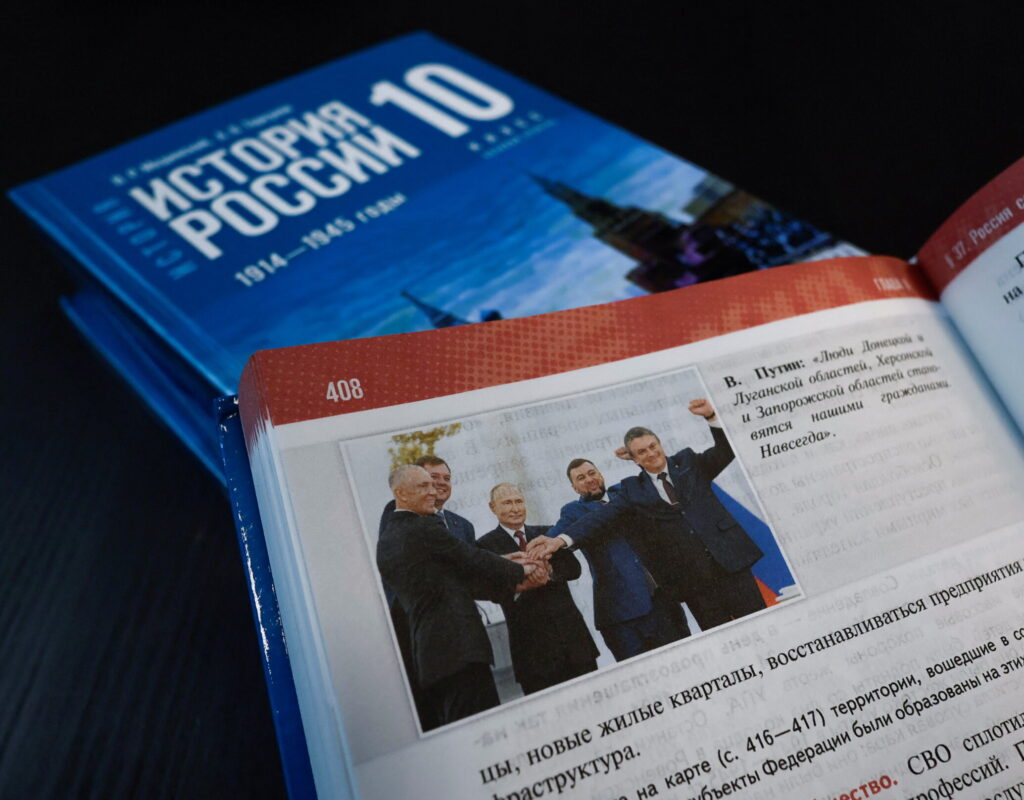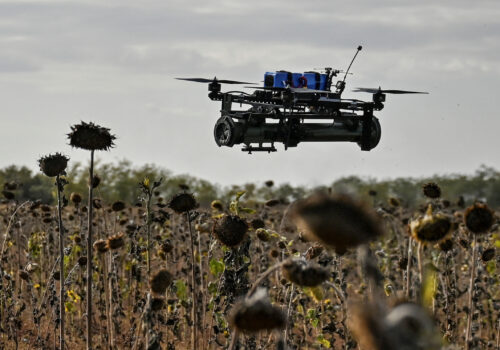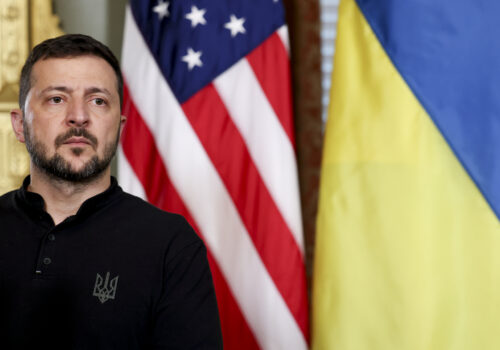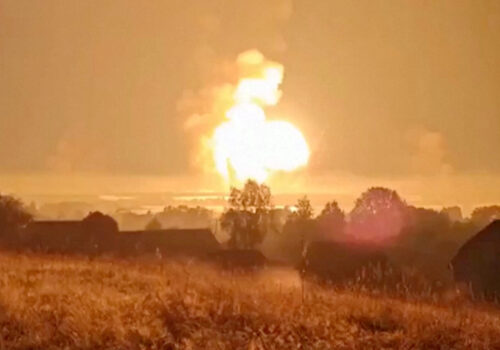In March 2023, the International Criminal Court in The Hague issued an arrest warrant for Russian President Vladimir Putin for his role in the mass abduction of Ukrainian children. The ICC’s allegations made headlines around the world, helping to raise international awareness about the thousands of Ukrainian children who have been abducted by Russia and subjected to a program of indoctrination designed to rob them of their Ukrainian nationality.
In addition to these well-publicized abductions, Russia is also conducting a far larger indoctrination initiative that targets hundreds of thousands of Ukrainian schoolchildren throughout occupied Ukraine. In areas under Russian occupation, the Kremlin is imposing an openly imperialistic school curriculum that denies the legitimacy of Ukrainian statehood and underlines the Russian government’s commitment to erasing Ukrainian identity altogether.
Stay updated
As the world watches the Russian invasion of Ukraine unfold, UkraineAlert delivers the best Atlantic Council expert insight and analysis on Ukraine twice a week directly to your inbox.
Ever since the onset of Russia’s attack on Ukraine in 2014, Moscow’s ambitions have extended far beyond conventional territorial gains. Over the past decade, Ukrainian classrooms in regions under Kremlin control have become an important battleground, with Russia intent on reshaping not only international borders but also national identities.
Vladimir Putin recently highlighted the importance of Russia’s efforts to indoctrinate the current generation of Ukrainian schoolchildren. Speaking at an educational event in early October, he singled out teachers working in occupied Ukraine for special praise. “You are demonstrating exceptional commitment and true courage, ensuring children can continue their education under challenging conditions,” he commented.
Moscow’s strategy has involved importing Russian teachers to schools in occupied Ukraine, while also pressuring Ukrainian educators to accept the new Kremlin-friendly curriculum via a combination of bribes, threats, and violence. “Ukrainian teachers in Russian-occupied Ukraine are now faced with a stark choice: Leave everything behind and flee, or become part of a system that indoctrinates children to justify Russia’s war of aggression,” commented Amnesty International General Secretary Agnès Callamard in October 2024.
Human Rights Watch has documented cases of arbitrary detention, torture, and intimidation targeting Ukrainian teachers and school administrators who refuse to comply with the Russian occupation authorities. One school director from the Kherson region in southern Ukraine reported being detained for a total of forty days and beaten before eventually escaping to Ukrainian-controlled territory.
Eurasia Center events

Wherever the Kremlin has established control in Ukraine, the Ukrainian education system has been systematically dismantled. Instead, children in Russian-occupied regions of the country are now being taught a curriculum that glorifies the actions of the Russian military in Ukraine and justifies the current invasion.
New Russian school textbooks produced since the start of the full-scale invasion reframe the war in heroic terms and present Russia’s attack on Ukraine as a liberation mission rather than an act of international aggression. Meanwhile, children are encouraged to dismiss the entire notion of Ukrainian nationality and embrace a Russian imperial identity.
The Kremlin’s indoctrination campaign against the next generation of young Ukrainians goes far beyond historical distortions. The Russian occupation authorities are actively militarizing Ukrainian schoolchildren and encouraging teenagers to join the Russian army. Ukrainian children are also forced to attend special propaganda classes that seek to instill loyalty to Russia along with hostility toward Ukraine.
Ukrainian parents are being targeted by the Kremlin to make sure they agree to subject their children to Russian indoctrination. In occupied regions of Ukraine, parents have been threatened with a range of severe consequences for non-compliance including fines, loss of custody, or imprisonment. Despite the risks involved, tens of thousands of Ukrainian children in occupied regions continue to study online with Ukrainian teachers.
While international attention remains firmly focused on the military dimension of the war in Ukraine, it is crucial to recognize that Russia’s invasion is not merely an attempt to acquire new territory or redraw the map of Europe by force. The Kremlin also clearly aims to extinguish Ukrainian national identity, and sees the transformation of young Ukrainians into loyal Russians as a key element of this criminal endeavor.
Tetiana Kotelnykova is a graduate student at Yale University specializing in European and Russian Studies, and a research assistant at the Wilson Center. She is the co-founder and executive director of Brave Generation, a New York-based nonprofit organization dedicated to supporting young Ukrainians affected by war and cultivating future Ukrainian leaders.
Further reading
The views expressed in UkraineAlert are solely those of the authors and do not necessarily reflect the views of the Atlantic Council, its staff, or its supporters.

The Eurasia Center’s mission is to enhance transatlantic cooperation in promoting stability, democratic values and prosperity in Eurasia, from Eastern Europe and Turkey in the West to the Caucasus, Russia and Central Asia in the East.
Follow us on social media
and support our work
Image: New Russian textbook glorifying the invasion of Ukraine. (REUTERS/Shamil Zhumatov/Illustration)




